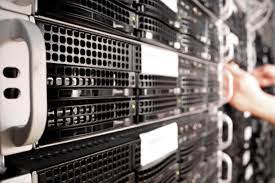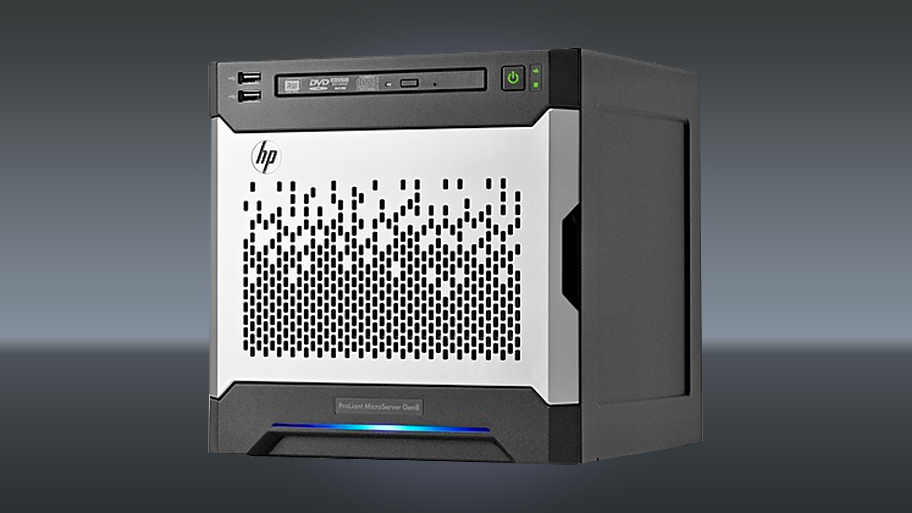Hello!
 Servers help create a basis for Information Technology by providing the required resources to facilitate data storage and access. Servers expedite data exchange across various web platforms and applications. Servers work around the clock to enable easy data exchange and resource sharing since they are always on and connected to the internet. They support various tasks such as cloud storage, file sharing, website hosting, and email hosting that enable you to accomplish your business goals.
Servers help create a basis for Information Technology by providing the required resources to facilitate data storage and access. Servers expedite data exchange across various web platforms and applications. Servers work around the clock to enable easy data exchange and resource sharing since they are always on and connected to the internet. They support various tasks such as cloud storage, file sharing, website hosting, and email hosting that enable you to accomplish your business goals.
However, choosing an appropriate server isn’t an easy feat as you have to carefully consider all the specs, such as storage space and processing power. That said, here are some server types that may be beneficial to your business.
Cloud Servers
 Cloud computing has played a significant role in providing useful resources over a network. Cloud servers provide on-demand computer system resources such as storage and computation. These computer system resources are accessible to multiple users with authorized access to the server.
Cloud computing has played a significant role in providing useful resources over a network. Cloud servers provide on-demand computer system resources such as storage and computation. These computer system resources are accessible to multiple users with authorized access to the server.
Additionally, cloud based servers work the same way as traditional servers since they provide computation power, data storage facilities, host websites, e-commerce sites, or applications. Cloud servers provide infrastructure as a service to process heavy workloads and store significant data volumes. The infrastructure can be physical, virtual, or both depending on your business’s needs.
Your business can only pay for the required resources and avoid the expenses involved in server hardware maintenance. You can opt for a shared hosting plan depending on your business needs and ensure that the shared option doesn’t compromise your data security. You can integrate the cloud servers into your dedicated network for effortless communication and smooth website or app deployment.
Dedicated Servers
 Unlike cloud-based servers, dedicated servers don’t come with a shared option for scalability based on your business needs. In dedicated servers, all computer system resources are devoted to one user. This way, you can make any configurations to the server to suit your business needs without affecting other users.
Unlike cloud-based servers, dedicated servers don’t come with a shared option for scalability based on your business needs. In dedicated servers, all computer system resources are devoted to one user. This way, you can make any configurations to the server to suit your business needs without affecting other users.
Dedicated servers provide isolated resources for critical app and website deployment with high performance. Dedicated servers can work with high-powered networks and utilize significant bandwidth to pull required computer resources and enable easy deployment. Dedicated servers define management levels based on the provided services and your business’s needs. Thus, choose a dedicated server hosting plan that meets your business needs and administrative support or management.
VPS Servers
Virtual Private Servers (VPS) work the same way as a dedicated server hosting environment, only within a shared server. VPS servers provide better performance, reliability, scalability, and security than shared servers and are much cost-effective than dedicated servers.
 VPS servers grant users root access to deploy their websites or applications and make the necessary environmental changes.
VPS servers grant users root access to deploy their websites or applications and make the necessary environmental changes.
This server type provides optimal performance since they allot dedicated bandwidth and storage space for each task.
Your business gains private access to a server where you can deploy, run your e-commerce apps or websites, and make changes to the environment without consulting the hosting service providers.
Also read:
- A Complete Guide to Leveraging Online Courses to Catapult Your Career
- What is the Difference between Outsourcing and Outstaffing
- Know All About Secure File Transfer Methods
Which One Should You Go For?
 Cloud servers enable you to remotely access computer system resources due to their unlimited bandwidth capabilities. They provide scalability to your business operations and cope with increasing web traffic. This way, you can scale your growth measures without the need for physical server installation, web, and app deployment, or making system upgrades.
Cloud servers enable you to remotely access computer system resources due to their unlimited bandwidth capabilities. They provide scalability to your business operations and cope with increasing web traffic. This way, you can scale your growth measures without the need for physical server installation, web, and app deployment, or making system upgrades.
Research all your options to determine more server capabilities and how they apply to your business. This way, you can get optimum performance, speed, and system security.
Thank you!
Join us on social media!
See you!






